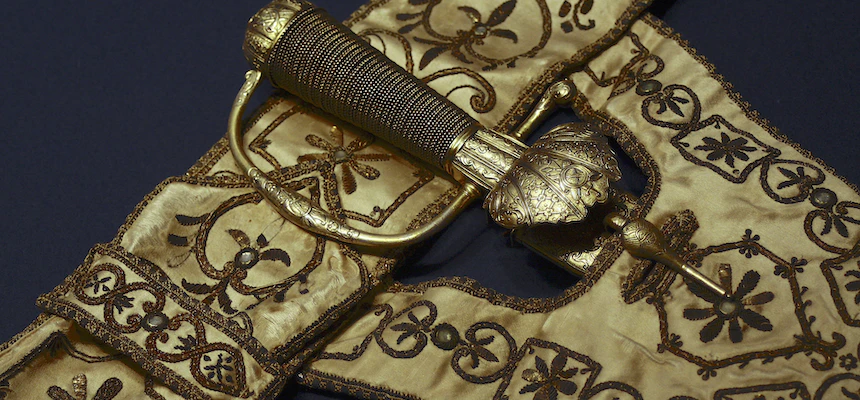
In the years of superheroes like Robin Hood, King Richard-the-Lion-Heart and villains like King John of England, we Catholics have a hero of our own, Pope Innocent III.
Born in either 1160 or 1161, Innocent was born Lotario dei Conti di Segni, son of Count Traimondo de Segni and Clarissa Scotti. He may have been the nephew of Pope Clement III. Much younger than many of the immediately preceeding popes, Innocent is seen as one of the most powerful and influential of the medieval popes.
As a young man, Lotario studied first in Rome and then went to Paris, and possibly Bologna, later, to study jurisprudence.
In 1181, he returned to Rome and held a variety of church offices during the reigns of Lucius, Urban, Gregory and Clement. Pope Gregory VIII named him a subdeacon within a few years. Clement III named him a cardinal-priest in 1191. During this time, Lotario studied and wrote two great works, “On the Misery of the Human Condition” and “On the Mystery of the Mass.”
Papacy
On 8 January 1198, at the age of thirty-seven, Lotario became pope on the second ballot to replace Clement III, who had died earlier that day. He took the name of Innocent III.
He immediately showed his policies: He claimed supremacy over all the kings in Europe, or at least, Western Europe. His heavy-handed manner must have shocked many. He excommunicated Alfonso IX of Leon for marrying his close cousin. He annulled the marriage of Alfonso of Portugal with Urraca, the daughter of Alfonso of Castile, for the same reason.
Innocent III showed himself to be a man of principles. When Emperor Henry VI died, his son, four-year-old Frederick II became King of Sicily. Henry’s widow died within a few years soon after she named Innocent the child’s guardian. Innocent did everything as honestly as possible, creating a win-win situation. Sicily once again became a vassal of the papal states. The Hohenstaufen regime of Germany was unable to control Sicily for a while. Through most of Frederick’s youth, Innocent protected him and supported him as best he could.
Innocent wanted to protect the liberty of the Church from secular princes. He stopped the practice of allowing princes in the selection of bishops. He supported the Church’s reforms regarding ecclesiastical affairs using decretals, interdicts and other modes to ensure obedience, even though it did not always work as expected. The Fourth Lateran Council was his push to refine Western canon law.
While the Saracens were fighting the Western Catholics in the Middle East, another heresy cropped up in Spain and southern France, the Albigensian, or Cathar movement. This heresy held that the universe was a battleground between good, which was spirit, and evil, which was matter. They believed that human beings were spirits trapped in physical bodies. That is and was never the teaching of Jesus Christ. But it spread quickly throughout the area. Innocent proclaimed a crusade against the heresy. St. Dominic and St. Francis participated in this small crusade to convert the people back to Catholicism. Meanwhile, over the Pyrenees, Catholics cornered Saracens and chased many out of Spain altogether, leaving most of the rest on the southern coast.
His other problem was saving the Western Catholics from the Saracens in the Middle East. He organized the Fourth Crusade. The first step was to attack the largest Muslim sultanate in Egypt. Venice offered to build boats for the crusaders to cross the sea on their way. But they built too many ships for the forces. The forces could not pay for all those ships. So, Venice offered to have the soldiers attack the city of Zara as payment. The attack led to Venice controlling that Catholic city.
The Pope heard and excommunicated the whole army. To replenish funds, the Crusaders accepted money to go to Constantinople to reestablish the throne of emperor Isaac and his son Alexios. Within a year, Alexios was murdered by his enemies. He would not be paying the men their bounty. So, the Crusaders attacked and plundered Constantinople. Few of the men continued on to the Holy Land. It took 50 years for the empire to reestablish itself. This solidified the East-West Schism.
Pope Innocent died suddenly in Perugia during a trip to northern Italy. He was buried in the cathedral of Perugia. Pope Leo XIII sought to honor him by removing him to the Lateran at the end of the 19th century.
.

Recent Comments